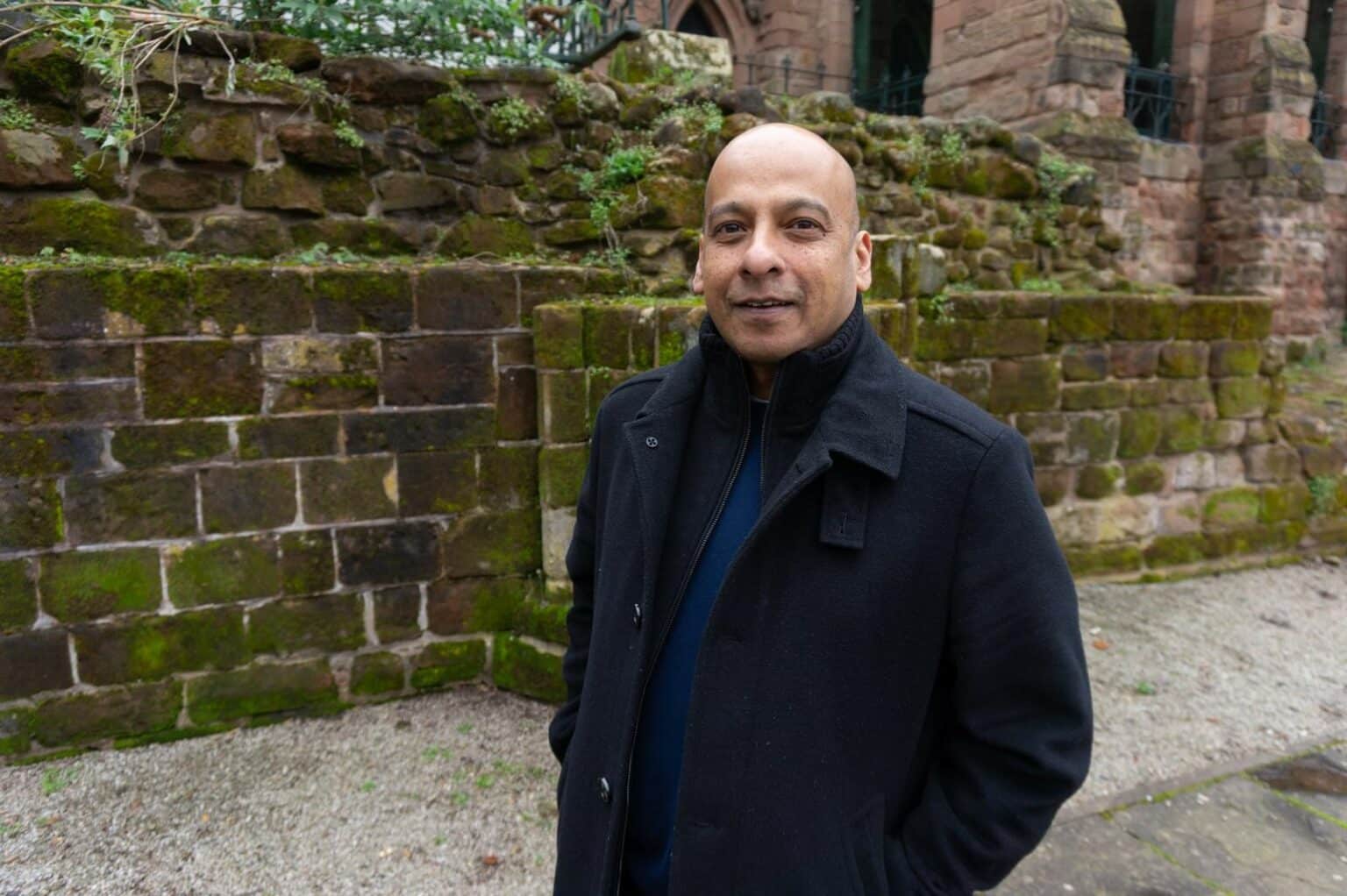
Neil Masih, our Intercultural Mission Enabler, reflects on Black History Month and his work to foster communities where all can belong and thrive.
As the Intercultural Mission Enabler at the Diocese of Coventry, I have spent the last three years working toward a vision of unity, inclusion, and understanding within our diverse church communities. My journey in ministry started at St. Paul’s Foleshill, a vibrant congregation in one of Coventry’s most diverse areas, where people from all walks of life have gathered together for decades. This church, which I have attended since childhood, laid the foundation for my passion for bringing people together, transcending cultural and racial divides to create a community where all are welcome.
Over the years, I have had the privilege of serving St. Paul’s in several roles. These have allowed me to witness firsthand the power of diversity in action. At the heart of our Christian faith lies the profound truth that we are all created in the image of God. This shared identity transcends any differences—cultural, racial, or social—that may divide us. As followers of Christ, we are called to recognise the inherent dignity and worth of every individual. Our calling is not something we have earned; it is a gift freely given by God’s grace. With this understanding, we are empowered to act as agents of God’s love and compassion, using our unique positions to uplift others and bring them closer to Him.
Breaking down barriers and building bridges
In my role as Intercultural Mission Enabler, I work to break down barriers and foster an environment where individuals from all walks of life feel welcomed within the church. This work is particularly important in a world that continues to grapple with institutional racism. It is imperative that the church becomes a place of refuge, where everyone feels seen, heard, and valued.
Part of my work involves identifying the unique gifts and talents that individuals bring to our community. By recognising and nurturing these gifts, I aim to empower people to overcome both personal and societal obstacles, enabling them to contribute to the life of the church in meaningful ways. Our Christian community must be one that not only celebrates diversity but actively supports and uplifts people from marginalised backgrounds, ensuring that they feel they belong.
The importance of Black History Month
While Black History Month, celebrated in October, provides a vital opportunity for reflection and celebration, it is essential that we commit to honouring Black history and heritage throughout the year. Much like South Asian Heritage Month, recognising the contributions and struggles of Black communities should be an ongoing endeavour, not confined to a single time of year.
The Church of England has a rich history, but it hasn’t always been a welcoming space for all. The experiences of the Windrush generation and other immigrants seeking spiritual homes highlight the challenges faced by those attempting to find belonging within the church. My role as an Intercultural Mission Enabler is, in part, to address these historical and ongoing issues by creating a more inclusive church.
This year’s theme for Black History Month in our diocese is ‘Interpreting Narratives’. We are inviting people to share their experiences through three key questions:
What do you enjoy about being part of the Anglican community?
What challenges or barriers have you faced?
What are your hopes for the future?
By encouraging these conversations, we can gain a deeper understanding of the experiences of Black individuals in our faith communities and take steps to create a more inclusive, welcoming space.
Expanding the conversation
This year, we are broadening our Black History Month activities to include individuals from all diverse backgrounds. Last year, we hosted a display celebrating Black history at a church in Leamington, and this year we held a welcoming service for the West Midlands Regional Racial Justice Team at Coventry Cathedral.
Ongoing commitment to racial justice
The Church of England has made significant strides in recognising and addressing the challenges faced by Black and ethnic minority communities. Initiatives like the Difference course and the Anglican Network of Intercultural Churches have played a critical role in promoting dialogue and raising awareness. However, there is still much work to be done.
We must continue to create spaces for open, honest conversations about race and racism. It’s essential to empower Black and ethnic minority individuals to have a voice and to take on leadership roles within the church. Through ongoing training, dialogue, and community-building activities, we can break down barriers and foster a more inclusive church.
Creating a truly inclusive church
To build a truly inclusive church, we must actively address the barriers that people face, both within the church and in society at large. This means challenging narratives that perpetuate negative stereotypes or exclude certain groups. The stories we tell—through sermons, videos, and other church resources—must reflect the diversity of our communities. The images and messages we use should communicate a sense of belonging, ensuring that all feel welcomed and valued.
As the new academic year begins and students arrive in the area, our churches have a unique opportunity to create a welcoming and inclusive environment for these young people. The church is more than just a building; it is a living community.
As we move forward, let us continue to pray, work, and inspire others to join us in this transformative mission. Together, we can build a church that reflects the beautiful vision of Revelation—a Kingdom made up of many tribes, peoples, and languages, united in worship. Let’s ensure that our churches remain places where everyone feels embraced, valued, and empowered to contribute to the life of the church.